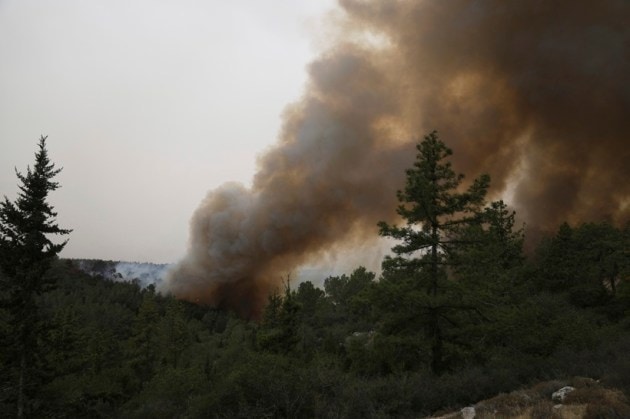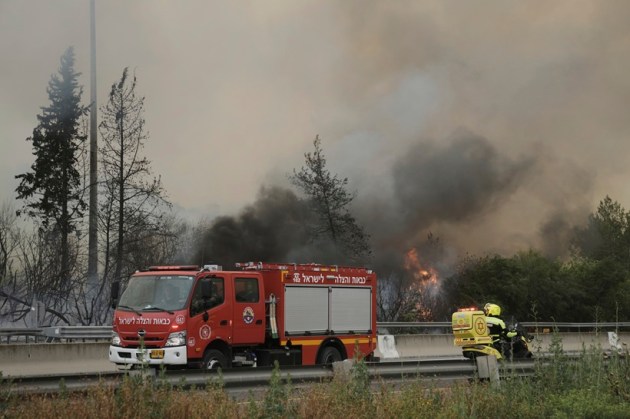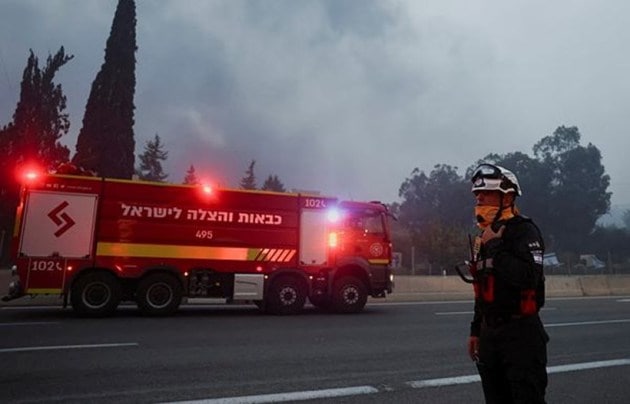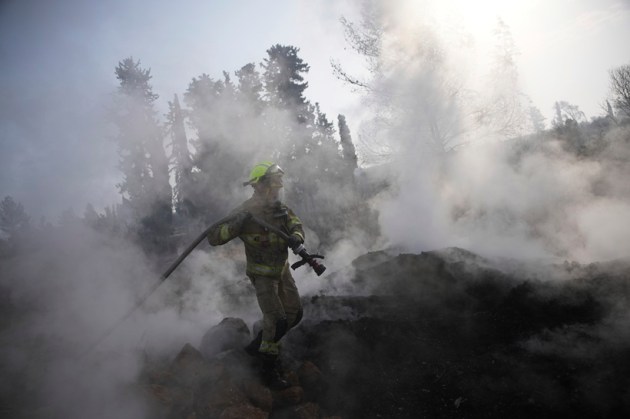In Photos: Wildfires rage near Jerusalem in one of Israel’s ‘largest’ blazes, rescue teams deployed
Prime Minister Benjamin Netanyahu announced that Italy and Croatia were sending three firefighting planes to assist.
Updated: May 1, 2025 12:49 IST 1 / 9
1 / 9Wildfires raged across the outskirts of Jerusalem, forcing evacuations, closing major highways, and triggering a large-scale emergency response involving firefighters, soldiers, and international aid. (AP photo)
 2 / 9
2 / 9The fires began near Mesilat Zion and rapidly spread westward before shifting east, fueled by searing heat and wind gusts reaching 90–100 km/h (56–62 mph), according to local reports. (Reuters photo)
 3 / 9
3 / 9Jerusalem District Fire and Rescue Commander Shmulik Friedman warned that the blaze ‘may be the largest there has ever been in this country.’ He added, 'We are far from having control [over the fires].' (AP photo)
 4 / 9
4 / 9Prime Minister Benjamin Netanyahu announced that Italy and Croatia were sending three firefighting planes to assist. Israel has also reached out to Greece, Cyprus, Bulgaria, and other nations. (AP photo)
 5 / 9
5 / 9According to Israel’s Foreign Ministry, countries including Romania, Spain, France, and Cyprus expressed willingness to help. Ukraine and Ecuador offered to send helicopters. (AP photo)
 6 / 9
6 / 9The Israel Defense Forces deployed search and rescue teams, fire trucks, and Super Hercules planes that dropped over 25 loads of fire retardant material, Reuters reported. (AP photo)
 7 / 9
7 / 9Route 1 between Jerusalem and Tel Aviv, along with Route 3, was closed as flames advanced. TV footage showed civilians fleeing on foot through thick smoke after abandoning cars. (Reuters photo)
 8 / 9
8 / 9At least 18 people, including two infants and two pregnant women, were hospitalized due to burns and smoke inhalation. Twelve firefighters sustained light injuries, local media reported. (AP photo)
 9 / 9
9 / 9A 50-year-old East Jerusalem resident was arrested on suspicion of trying to ignite a fire in southern Jerusalem. The official cause of the fires remains under investigation. (Reuters photo)











